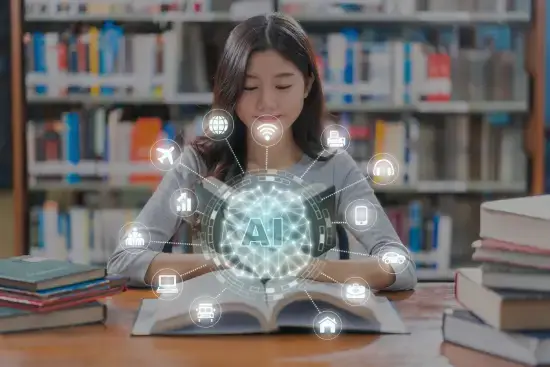
Artificial Intelligence in the Future of Education
Empowering the Future of Education with Artificial Intelligence


AI as a tool to enhance student learning
Personalization has been identified as a crucial approach through which technology can enhance education. Artificial Intelligence (AI) acts as a powerful framework for strengthening the adaptability of educational technologies. With AI, digital learning tools can better understand learners’ current levels, leverage their abilities, and foster the growth of their knowledge and competencies. Owing to AI’s capacity to interpret natural forms of input and the robust foundations of its models, it serves as an exceptional resource for extending adaptive learning opportunities to students.
As Artificial Intelligence (AI) becomes integrated into educational settings, two broad perspectives emerge regarding its role in education:
However, it is equally essential for students to understand AI, critically analyze its impact on education and society, and reflect on its significance and potential influence in their personal lives and future careers.
With continuous advancements in the foundations of Artificial Intelligence (AI), the possibilities for leveraging AI to enhance learning are expanding rapidly. As we explore these emerging opportunities, the following open questions warrant ongoing reflection and careful consideration:
As leaders in both pre-service and in-service teacher education consider how AI can enhance teaching—alongside policymakers, developers, and researchers—we encourage everyone in the educational ecosystem to dedicate more time to exploring these questions:
While AI can support learning and teaching, it cannot yet replicate the nuanced judgment, creativity, and emotional understanding of human educators. Careful oversight, ethical use, and critical reflection are essential to maximize its benefits while minimizing risks.